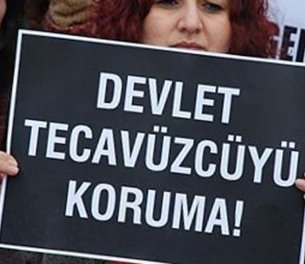Drawing on İstanbul Convention, the law of 'only yes means yes' approved in Spain

In Madrid, Spain, a new law was passed by the cabinet of the coalition government on July 6 to protect women against sexual assaults and their legal position. In this regard, Spain can be seen as a pioneer.
At a time when Turkey, the first country to ratify the İstanbul Convention, has withdrawn from it by a Presidential decision, the bill approved in Spain builds on the formulations of the İstanbul Convention.
With this bill, the government of Spain has reacted to a crime that took place exactly 5 years from today. During the San Fermin celebrations in Pamplona city in 2016, five young men raped a young woman several times while filming the scene. In the ensuing legal process, because the woman did not explicitly resist, the judges did not assess it as rape, but the less severe crime of abuse. One judge did not even plead for abuse as he claimed to "see expressions of lust" on the aggrieved woman's face.
That incident was followed by mass protests. Ever since during the San Fermin celebrations, the focus of activists, municipalities and wider society is put on sexual aggressions and its prevention.
Silence does not mean consent
The bill states that consent only prevails when the person expresses it actively. The Ministry of Equality headed by Irene Montero was filing out the law for more than 16 months. Now, it is only the parliament's approval that is left and which is expected to be given by the end of the year.
Hereafter, there will not be any legal distinction between 'rape' and 'sexual abuse' anymore. In other words, regardless of the way in which the non-consensual sex is codified, it will be perceived as rape and it will be punished with up to 15 years of imprisonment.
The law includes the punishment of pandering, sexual harassment on the streets, female genital mutilation as well as sexual harassment on the Internet. Further dimensions are the measures accompanying the process that are meant to protect the psychological burden for the aggrieved woman such as the possibility to avoid eye contact with the perpetrator and the establishment of a nation-wide crisis center for women.
New laws for a new mentality
Already in 2004, Spain passed its first law to prevent male violence concerning domestic violence respectively as an international pioneer.
While in a few countries such as Spain and Portugali the legal language is similar, the legal situation in Turkey shows a trend in a different direction.
Spain's draft bill states: "Consent is only expected to prevail, when it is uttered by action that expresses the will of a person unequivocally". With this definition, the law builds on the formulations of the İstanbul Convention, from which Turkey withdrew with effect on July 1.
NOTE: As reported by the BBC, the law is being named "only yes means yes" to reflect the Council of Europe's Istanbul Convention on violence against women. The Article 36/2 of the İstanbul Convention says, "Consent must be given voluntarily as the result of the person's free will assessed in the context of the surrounding circumstances."
A new law cannot change realities. But the legal framework is seen to be the start of a new normative attitude and discussion.
While Spain's new law corrects the response of the public towards the aggrieved woman and, by that, the perspective from which a crime is approached, it is feared that the moves such as the withdrawal from the İstanbul Convention will lead to a return to conservative perspective.
|
On the other side, the bill publicly known as "marry your rapist"-law in Turkey from 2017 was criticized for foreseeing amnesty to the perpetrators of child abuse if the perpetrator and the aggrieved child got married. The bill was shelved in 2005 and brought back onto the agenda in 2016, when a new draft was brought back to the Parliament. Due to local protests and international condemnation, it was eventually cancelled again. But there are allegations that the parliament is discussing to bring the topic up again. It is feared that it will amount to a failure of the state to protect women by institutionalizing injustice, considering that the interplay of increasing physical and structural violence is obvious. NOTE: On the other side, if the 4th Judicial Package passed by the General Assembly of the Parliament yesterday (July 8) is enacted as law, "concrete evidence" will be sought to arrest a suspect in crimes of sexual abuse of children. While women and children's rights organizations denounce the package, lawyers underline that not only physical findings, but the statements of children and the pictures that they draw are also pieces of concrete evidence. |
Coming back to Spain, it is the accompanying dimensions of its new bill that enable a possibility for an increased sensibility towards injustice and keep the subject in the visible and heard discourse. (BB/SD)










